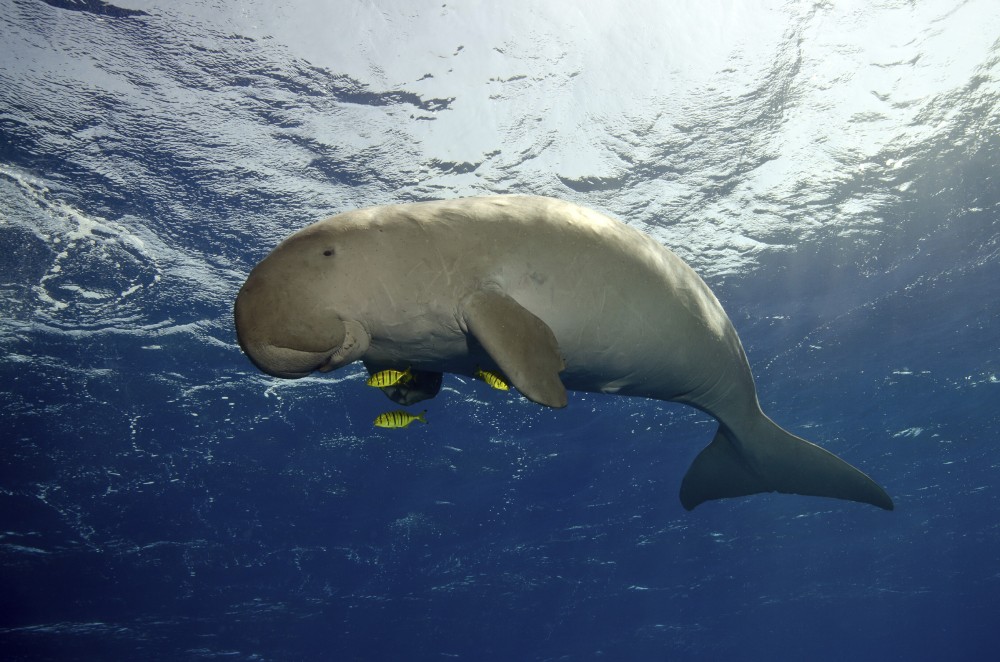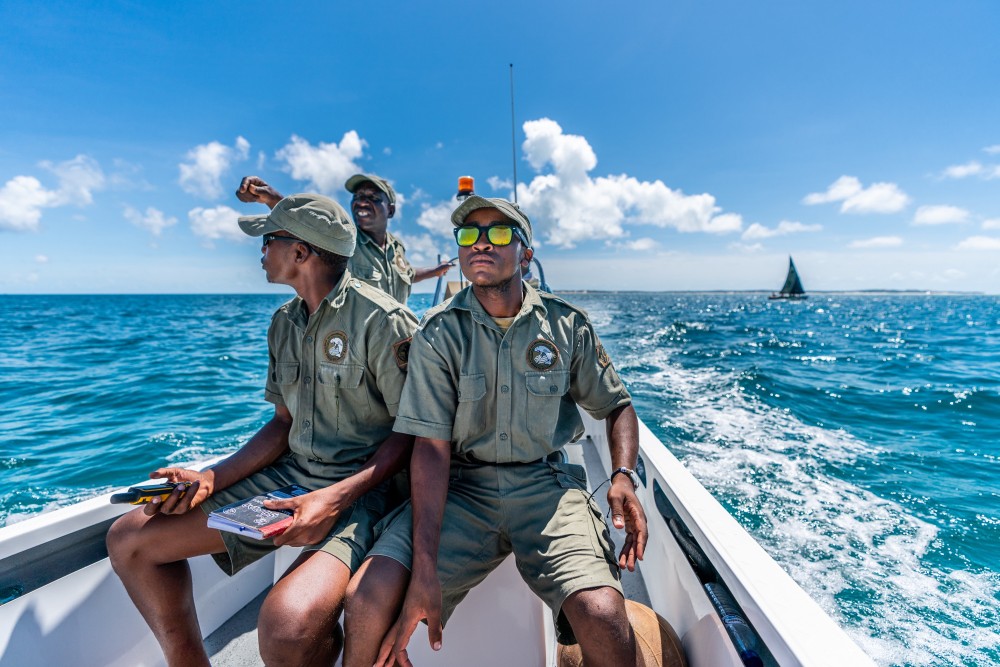Bazaruto Archipelago is one of the most important marine sanctuaries along the East African coastline, with a range of critical habitats for many rare and endemic species. In addition to being in an ecologically rich tropical zone, its varied marine habitats contribute to an outstanding wealth of species, including 500 marine and coastal mollusc species, 2,000 fish species and nine marine mammal species, including whales, dolphins and the dugong. Migratory species move through the park’s productive marine environment, such as whale sharks, great white sharks, manta rays and killer, southern right and humpback whales.
The archipelago’s reefs are a valuable resource as they are an isolated node of reef development between the limited reefs in southern Mozambique and South Africa and the more extensive coral reefs north of Beira.
Bazaruto Archipelago National Park was declared a protected area in 1971, when its unique ecological value was first recognised.
Species Restorations and Monitoring

Following collaborative research work coordinated by park management, the research team successfully applied to the International Union for Conservation of Nature (IUCN) to reassess the status of the East Africa dugong (Dugong dugong), of which the last-known viable population exists in Bazaruto. As a result, the IUCN approved the relisting of the East Africa subspecies, from Vulnerable to Critically Endangered on the IUCN Red Data List. The reclassification is an important conservation milestone.
Aerial dugong counts this year saw 119 individuals, with 16 calves, indicating a healthy, stable population of a few hundred. Hundreds of turtles, sharks, rays, dolphins and whales were also seen during the counts.
Bazaruto is the only known place in the western Indian Ocean where all five regionally resident turtle species (leatherback, loggerhead, green, olive ridley and hawksbill) nest. Fourteen Bazaruto turtle monitors, 18 rangers and nine Vilankulo Sanctuary turtle monitors received training, in partnership with Centro Terra Viva (CTV), on turtle tagging, protocols for monitoring and techniques for relocating nests to stable areas. A total of 76 nests of all sea turtle species were recorded for the 2021/2022 season, with approximately 4,500 live hatchlings counted.
Conservation Law Enforcement

The diverse habitats around the Bazaruto Archipelago are under threat due to illegal and unsustainable fishing practices, unregulated natural resource use, and uncontrolled tourism activities. These not only threaten its biodiversity but have resulted in a considerable loss in park revenue, leading to the further impoverishment of local communities.
Bazaruto’s skilled ranger unit of Mozambican nationals is tasked with protecting their natural heritage while building strong relationships with the people who live in and around the park. Twenty new rangers were recruited, including Mozambique’s first female seafaring rangers. Patrols on land and sea, jointly with local government, have resulted in a steady decline in illegal activities in the park.
Further conservation efforts include looking at new sustainable fishing techniques that are less destructive than seine netting; these have been well received by the community.
